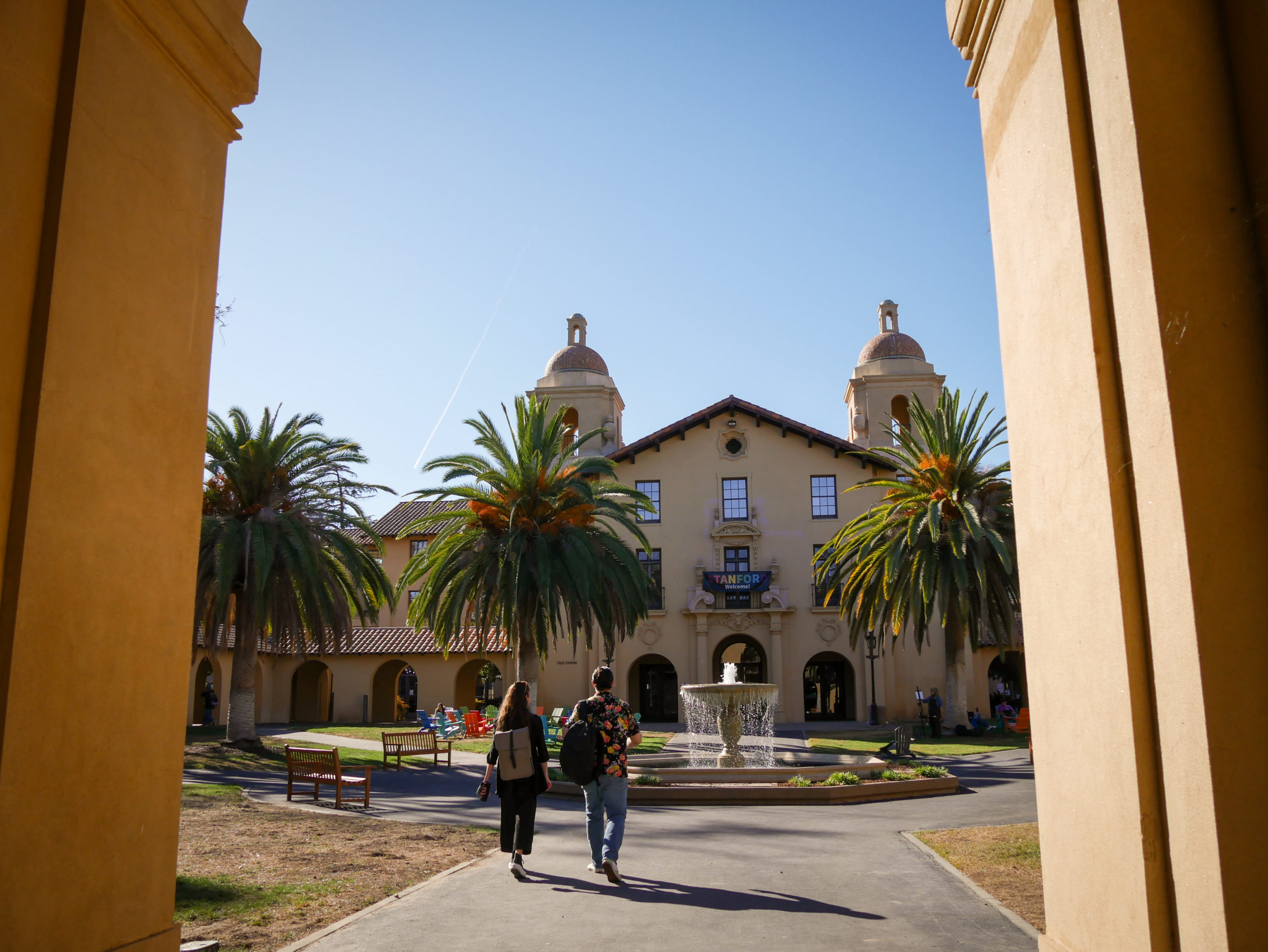Despite the global spread of the Omicron variant, Stanford plans for an on-schedule return and an in-person winter quarter, Provost Persis Drell and Associate Vice Provost for Environmental Health & Safety Russell Furr wrote in a Monday email.
Undergraduate residences close on Saturday, Dec. 11 at 12 p.m. and reopen Saturday, Jan. 1 at 8 a.m. Dining halls also reopen Jan. 1, but will close this Friday, Dec. 10. Graduate students who did not live on campus fall quarter will be allowed to move in Friday, Dec. 31. In-person instruction will resume on Monday, Jan. 3.
Students returning from domestic or international travel the weekend of Jan. 1 will take an arrival-day rapid test. All students will be required to take two COVID-19 tests through Color Genomics the week they return, regardless of vaccination status. The first test should be taken as soon as possible after arrival, while the second test should be taken three to five days later. After the end of the first week, unvaccinated individuals will be required to continue twice-weekly testing, while vaccinated individuals will only have to test once per week.
To ensure a safe return to campus, the University also plans to continue enforcing mask and social-distancing guidelines and will prohibit parties and other large gatherings for the first two weeks. The University also encourages eligible individuals to receive a COVID-19 booster shot if they have not done so already.
All unvaccinated students returning to campus will be subject to a period of restricted activity until they receive a negative day-five test result. Attending classes in-person or eating in dining halls will be prohibited during this period.
“Under restricted activity, students living on campus may leave their residence only for COVID testing, medical care, laundry and trash, solo outdoor exercise, and meal pick-up if you have a Stanford Dining meal plan or pick-up of grocery or prepared food deliveries,” Drell and Furr wrote.
The University encourages instructors to be flexible during this period of restricted activity for unvaccinated students.
Unvaccinated employees will also go through a period of restricted activity during which they will not be allowed to return to campus until receiving a negative day-five test result following arrival from travel.
Vaccinated faculty, staff and postdocs must complete two COVID-19 tests upon returning to campus for the first week and continue to follow University masking guidelines. COVID-19 testing will be optional for students and staff staying on campus during winter break.
The email also said anyone traveling internationally should familiarize themselves with current Center for Disease Control’s (CDC) guidelines for international travel, including the new requirement to obtain a negative test one day before returning to the United States.
According to the CDC, the one-day timeframe provides more flexibility compared to a 24-hour timeframe.
“By using a 1-day window, test acceptability does not depend on the time of the flight or the time of day that the test sample was taken,” the CDC’s guidelines state. According to the current guidelines, the required COVID-19 test for entry to the U.S. can be completed anytime the day before the flight, even if it is more than 24 hours before the departure time.
The University strongly discourages international travel for individuals that are unvaccinated and not a U.S. citizen or permanent resident, since changes to COVID-19 restrictions may prevent these individuals from returning to the United States, Drell and Furr wrote.
“While Omicron is not a reason for panic, it is a reason for us all to continue taking prudent steps to limit the risk of COVID-19 transmission,” they wrote.
